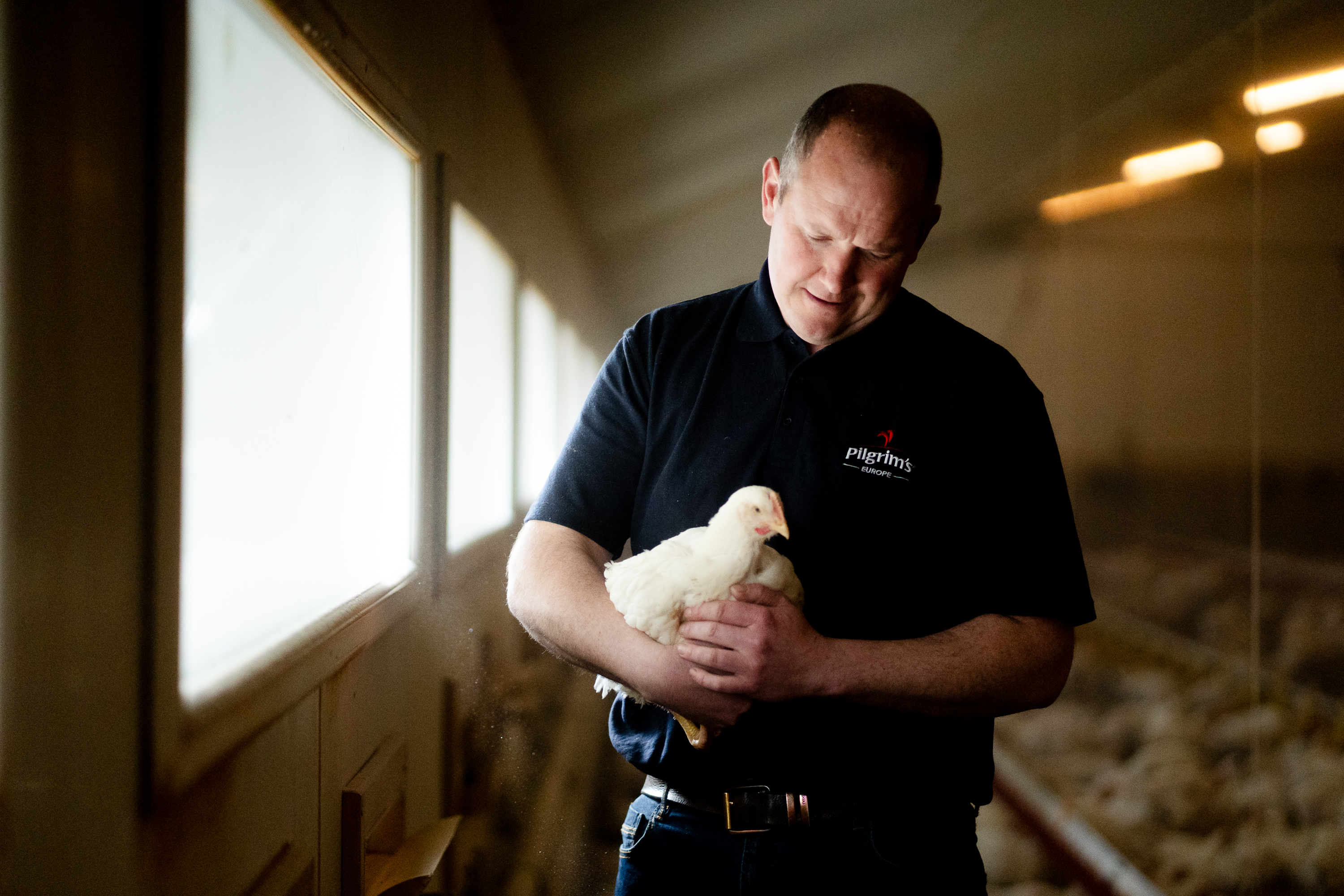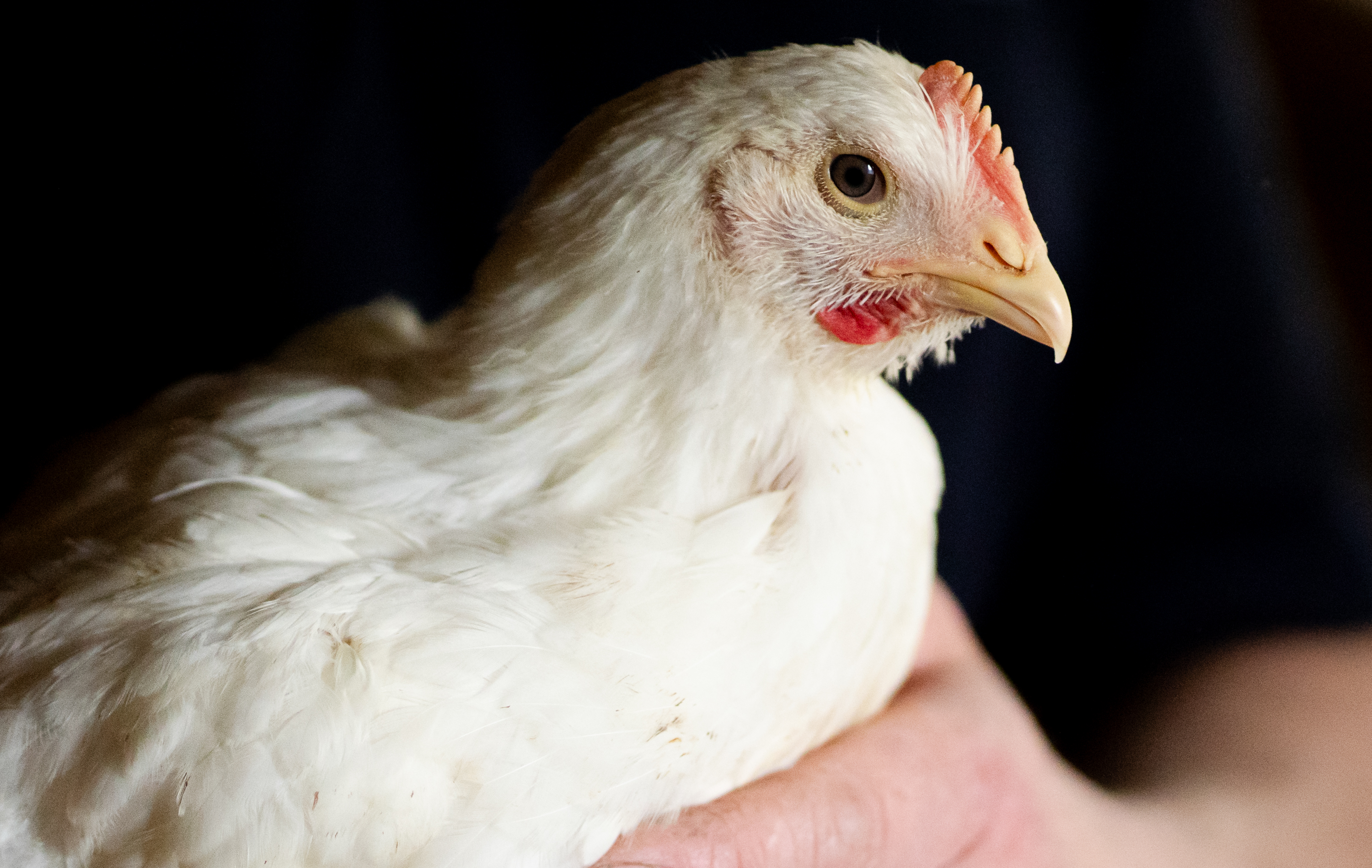What the cluck? Waitrose announces ‘trailblazing’ pledge to help improve chicken welfare standards
Waitrose has signed up to the Better Chicken Commitment, but does the scheme leave Britain open to inferior imports?


Exquisite houses, the beauty of Nature, and how to get the most from your life, straight to your inbox.
You are now subscribed
Your newsletter sign-up was successful
The future is looking a little rosier for the more than one billion chickens reared in the UK each year as supermarkets and food service outlets move towards the Better Chicken Commitment (BCC), a higher welfare scheme devised by Compassion in World Farming (CIWF).

Waitrose rolled out its BCC range of fresh chicken across stores last week, promising that by the end of August all its own brand chicken products, including frozen, ready meals and sandwiches, will also be compliant — a move described as ‘trailblazing’ by the RSPCA. A new transparent welfare labelling scheme has also been implemented and explains the different production methods for BCC, free range and organic, giving customers the informed choice Waitrose says they deserve. (M&S has sold its Oakham Gold fresh chicken under the BCC scheme since 2022 and more retailers have pledged to comply by 2026.)
Conditions in Britain’s broiler sheds had already improved since many of us witnessed the spectacle of TV chefs Jamie Oliver and Hugh Fearnley Whittingstall weeping over the plight of intensively reared chickens back in 2008. Growers have introduced natural light into the sheds, opened windows and provided ‘enrichment’ such as perches, forage to peck at and straw bales to jump on. By the end of last year all major UK supermarkets apart from ASDA had required their suppliers to increase space per bird in the sheds from one square metre per 38kg (around 19 birds), to 30kg/m2, or 12-14 birds.
At Whittern Farms in Herefordshire, managing director Jo Hilditch has been producing broilers for 30 years: ‘The chickens seem just as clucky; you can tell when you walk into the shed, there’s a murmur and hum of general activity and they love to play. The supermarkets have underwritten the extra cost of 20% more space so we can still make our margins.’

The lower stocking density is the same as that mandated by the BCC, but the new scheme goes further, requiring a move to slower growing breeds such as the Hubbard Redbro, now grown by Waitrose farmers, which reach slaughter weight at around 45 days. The Ross 308 breed chickens, grown by most producers, are finished at between 34 and 38 days. The BCC website claims such breeds grow so big, so fast, ‘they may struggle to walk, have difficulty breathing and may develop heart conditions.’ By contrast, a 2022 study by Aberystwyth University concluded that slow growing broilers displayed playful behaviour and were more active — running, preening and dustbathing.
Hilditch is a member of the NFU Poultry Board and has trialled the slower growing breed. She warns: ‘BCC may be a better option for some, but a 20% longer life span on top of 20% lower stocking density will have a dramatic effect on supplies. If everyone is going to follow this trend we simply don’t have the space on the ground. It’s all very well saying Britain is the standard bearer for the industry, but if we don’t produce enough chicken it opens the floodgates to imports.’
ASDA has already bought in chickens from Germany. NFU poultry board chair James Mottershead told The Grocer: ‘It’s disappointing but our understanding is that this is a temporary issue and that ASDA remains committed to sourcing 100% British chicken.’
Exquisite houses, the beauty of Nature, and how to get the most from your life, straight to your inbox.
Meanwhile a report by CIWF warned that more needed to be done by British supermarkets to transition to higher welfare production in time for the fast approaching 2026 deadline. ‘Only when companies reach 100% compliance will we achieve the full impact for chickens,’ said the charity.
Jane Wheatley is a former staff editor and writer at The Times. She contributes to Country Life and The Sydney Morning Herald among other publications.
